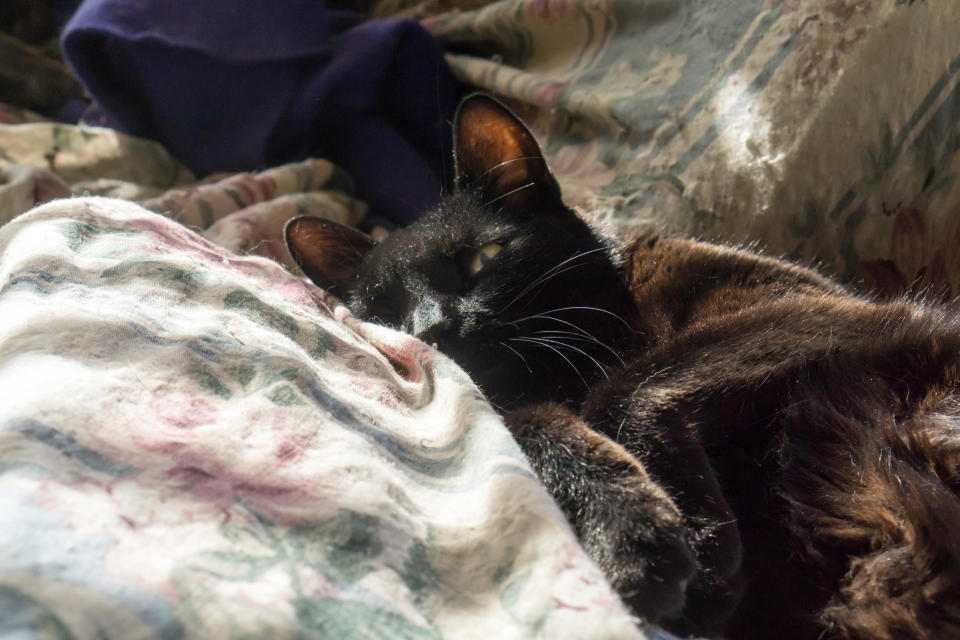Tougher sentences for pet abduction backed by the House of Commons
Criminals face up to five years in jail for abducting cats and dogs under a proposed law supported by MPs and the Government.
The Pet Abduction Bill, which would apply in England and Northern Ireland, creates two new offences and cleared its first Commons hurdle on Friday.
Animals are regarded as property under existing theft legislation, with campaigners arguing for the emotional value of pets to be recognised and the distress caused if they are stolen.
Carry On Up the Commons latest…
Tory Sir Edward Leigh referred to his wife’s grandmother as "Granny Meow" because she had 14 cats.
Sir Robert Buckland later says he almost called her “Granny Pussy” before correcting to “Granny Meow”.
MPs are debating pet abduction. pic.twitter.com/b5PqCJ8T4L
— Richard Wheeler (@richard_kaputt) January 19, 2024
The Bill would make it an offence to take a cat or dog from the lawful control of another person, with offenders facing a maximum prison sentence of five years.
No 10 said it was backing the legislation out of recognition that “dogs and cats are part of our family”.
A spokeswoman for Prime Minister Rishi Sunak, who has a family dog, Nova, that lives in Downing Street, told reporters: “Putting the maximum term at five years is about recognising the impact that pet thefts have on families and the emotional impact and distress that this can cause people.
“It recognises that these thefts should not be treated as thefts of inanimate objects, as dogs and cats are part of our family.
“These cases where they happen are obviously extremely distressing.”
Conservative MP Anna Firth (Southend West), the Bill’s sponsor, said figures showed there were more than 12,000 dog thefts between 2018 and 2022 and warned the true number is likely to be higher.
She added cat theft is “now catching up” with an increase in recent years.
Ms Firth told the Commons: “If this Bill is enacted we will have better protections for our pets, we will have offences that duly recognise that they are sentient beings, we will be able to better record and track pet abduction, we will have a better deterrent and I hope we will see a greater prosecution rate than 1%.”
Conservative former minister Sir Edward Leigh backed the Bill but raised concerns that “kindly old ladies” and others who seek to help cats and dogs that they believe are homeless could be unfairly penalised under the proposals.

Ms Firth said dog abduction means the taking or detaining of a dog while the detention aspect is not applicable in the offence of cat abduction “because cats roam” and their behaviour is different.
She added: “There’s also a defence of reasonable excuse – we do not seek to over criminalise the good behaviour and good intentions of old ladies and many other people.”
Ms Firth later said her Bill would not punish cases where there has been “no malice or ill intent” for looking after a cat that has “voluntarily come to another person’s home”.
She added: “Many of us will have read the children’s book Six Dinner Sid, in which Sid the cat has his dinner at six different houses on the same street.”
Sir Edward intervened again to say: “I’m just thinking of my wife’s grandmother, who in our family was known as Granny Meow because she had 14 cats.
“And every single cat … they hadn’t arrived in her home, she had gone and picked them up because she thought they were strays, she was a completely innocent old lady and no question of stealing.
“I want to be absolutely sure that in no way could policeman plod knock on her door – she’s dead, of course – couldn’t have knocked on her door and taken her to court.”

Ms Firth offered assurances that the Bill offers a defence where people are picking up stray cats and dogs, or involving themselves with someone’s else animal for “good and honourable and noble reasons”.
The Bill revives measures previously outlined in Government legislation but dropped in June 2023.
It received an unopposed second reading and will undergo further scrutiny in the Commons at a later date.


